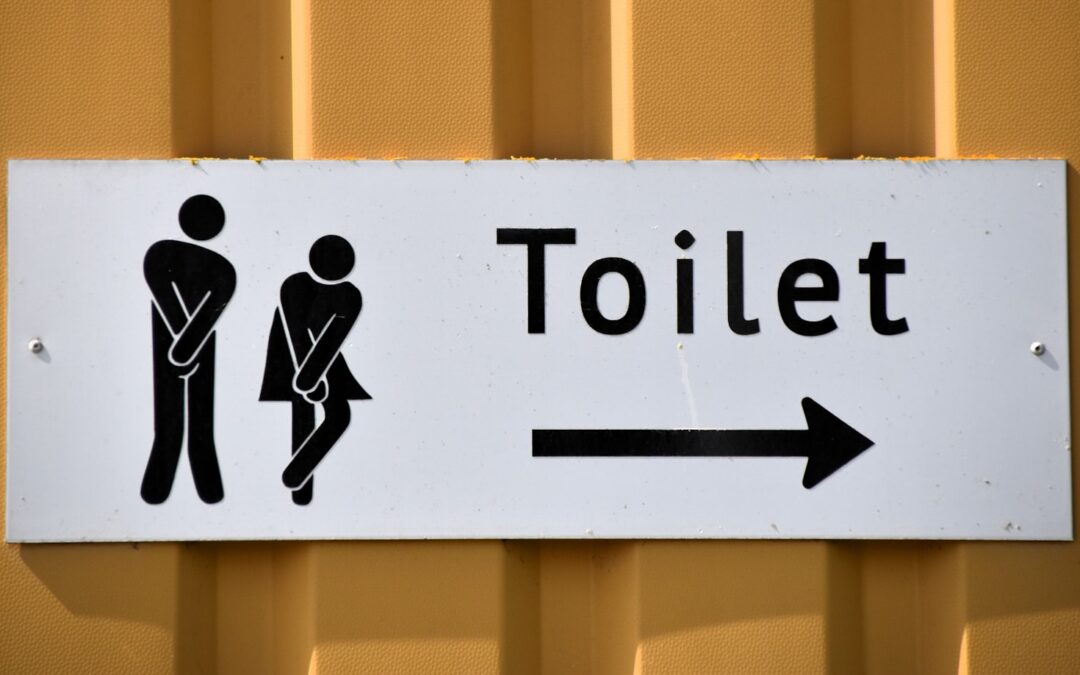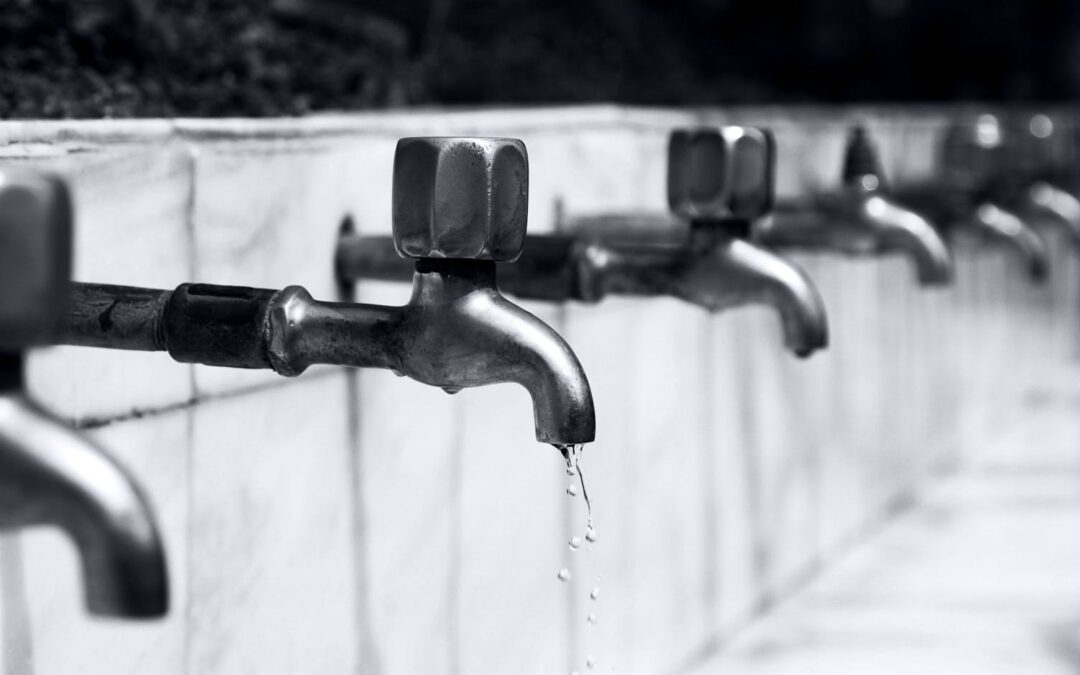Is your water heater leaking? Water heater leaks often start small but can soon become large enough that water begins flowing directly from the drain valve or any part of your water heater piping, valves, or fittings.
Thus, even minor water leakage from a leaking water heater requires immediate attention as it can cause extensive damage if left unchecked.
This article will discuss water heater leaks – their causes, how to identify them and what steps you should take if you find one to prevent further damage.
Schedule Service Online
Get a free estimate so you know what you're signing up for
"*" indicates required fields
For Emergency Services Call: 410-255-9300
Water Heater Leaks
Water heater leaks often look like water spots on the floor or walls near your water heater. You may also hear water running when the water heater is not in use.
Leaks are often more common in older water heaters, as the water heater elements and connections corrode over time. However, newer water heaters may leak due to faulty installation, water pressure, or other causes.

Common Causes Of Water Heater Leaks
As your water heater ages, the inside of the tank and other parts start to corrode, causing slow wear and tear that frequently results in leaks. However, your water heater may leak for other reasons besides rusted heating elements. Here are some additional reasons why your water heater could leak:
Faulty Water Heater Installation
Faulty water heater installation is one of the leading causes of water heater leaks. Poor water heater installation can cause water to leak from the base, the pressure relief valve, or any other faulty connections. If your water heater is installed incorrectly, it may have air gaps in the wall that allow water to seep out and pool on the floor.
Loose Drain Valve
Loose drain valves can also cause water heater leaks. A loose drain valve is typically caused by the water pressure being too high or when the valve itself is not properly installed. The water pressure in your water heater should always be set to the manufacturer’s recommended level and checked periodically for any changes.
Sediment Build Up
Another cause of water heater leaks may be sediment build-up on the bottom of the water heater tank. Over time, sediment from water can build up and accumulate on the bottom of your water heater tank, resulting in water leaking through any weak seals or faulty connections.
This type of water leakage is usually caused by a lack of regular maintenance, as most water heaters should be flushed every 6-12 months to prevent sediment build-up.
High/Poor Water Pressure
High water pressure or poor water pressure can also cause water heater leaks. Poor water pressure that is too low will result in water leaking from the tank due to the water being unable to circulate effectively.
On the other hand, high water pressure can cause your water heater to overwork and strain the pipes, fittings, and drain valves, which can lead to water leakage.
Leaking Water Supply Lines
Leaking water supply lines can also be a cause of water heater leaks. Supply line leaks can occur due to improper installation, loose fittings or connections, faulty seals, or simply old and worn-out pipes that need replacing.
If water supply lines are leaking, it is important to have them repaired as soon as possible to prevent further water damage.
Cracked Storage Tank
A cracked storage tank also causes water tank leaks. Water heaters over ten years old can begin to rust and deteriorate, which can cause the water heater’s storage tank to crack and begin leaking water.
Suppose you notice water leakage from your water heater’s storage tank; contact a professional plumber immediately to inspect the water heater for any signs of wear and tear or damage.
Inlet & Outlet Connections
Leaking inlet and outlet connections may also cause water heater leaks. These connections often become loose due to the vibrations from the water flow, leading to water leaking through any weak seals or faulty connections.
Inspecting these connections regularly and having them tightened if necessary to prevent water leakage is important.
Anode Rod
The anode rod within your water heater can also be a potential cause of water heater leaks. The anode rod is responsible for preventing corrosion and sediment build-up. However, over time, it can degrade, resulting in water leaking from the water heater tank.
To prevent water leakage due to the anode rod, it is important to check its condition and replace it when necessary regularly.
Malfunctioning Temperature And Pressure Relief Valve
Finally, water heater leaks may be caused by a malfunctioning temperature and pressure relief valve. This safety device is designed to release pressure if the water temperature or pressure becomes too high.
However, if the valve becomes corroded or malfunctioning, water can leak out, resulting in water heater leaks. Inspecting this valve regularly and replacing it when necessary to prevent water leakage is important.
How To Prevent Water Heater Leaking
A water heater leaking can cause water damage to your property, as well as an increase in utility bills. To prevent water heater leakage, there are a few steps you can take.
Regularly Check And Maintain Your Water Heater
Checking your water heater regularly allows you to spot any signs of leakage before it becomes a larger problem. It is important to visually inspect the water heater for signs of corrosion or rusting and check hoses, valves, and pipes for any potential leaks.
If you spot any signs of water leakage, contact a professional immediately to diagnose and repair it.

Monitor Pressure Levels Within Your Hot Water Tank
Too much pressure within the hot water tank can cause water heaters to leak or even burst. Using a pressure gauge or relief valve tester, you should regularly monitor the pressure levels inside your hot water tank.
If the pressure exceeds 80 psi (pounds per square inch), consider installing a pressure-reducing valve to reduce the water flow and maintain safe operating pressures within your water heater.
Install An Expansion Tank On Your Hot Water System
Installing an expansion tank on your hot water system helps protect against too much pressure in hot water lines when exposed to extreme temperature changes.
The expansion tanks act like an overflow reservoir where excess pressure diverts until it dissipates below 80 psi.
Reduce Heat Output From Your Hot Water Tank
Reducing heat output from your hot water tank will help prevent excessive build-ups of steam inside, allowing for more consistent temperatures throughout usage cycles.
This allows for less wear & tear on components such as elements & thermostats, decreasing the potential for leakage issues due to device failure over time compared with hotter systems relying solely upon electric power sources alone.
It also increases lifespan expectancy, depending upon usage rates & maintenance practices employed over time.
Upgrade Your Water Heater Unit To A More Energy Efficient Model
Upgrading from an older model may be necessary if energy efficiency has become an issue due to frequent use or age-related wear & tear leading up to potential leakage issues.
This especially applies if you’ve been using standard heating elements rather than more energy-efficient models like gas & solar-powered units.

How To Identify Water Heater Leaks
A water heater leak can be hard to detect early on before it has caused significant damage. Luckily, by taking proactive measures and utilizing creative strategies, you can identify leaks quickly and easily whether you have an electric or a gas water heater.
The most obvious sign of a water heater leak is a pool of water around the bottom of the unit. If you notice any dampness near your water heater, chances are there’s a leak somewhere that needs attention.
However, sometimes this is visible once it’s already caused significant damage to the surrounding area. To make sure you don’t miss any signs of a potential leak, here are some tips for identifying water heater leaks:
Check Your Walls Regularly
A good way to keep an eye out for potential electric or gas water heater leaks is to inspect your walls near the unit every few months. Look for any signs of dampness or discoloration in these areas, as they may indicate moisture coming from the unit itself.
Listen For Leaking Sounds When You Run Your Hot Water Tap
A small crack in your electric or gas water heater tank might cause leaking sounds when you turn on the hot tap faucet in your home. This could indicate an issue with the tank that needs attention if left unchecked and could result in more serious consequences.
Monitor Energy Bills For Any Spikes In Cost Over Time
Suppose you have an electric water heater and notice that your energy bills have increased considerably over time, even though usage levels have stayed consistent. In that case, this could be due to a slow but steady electric hot water heater leak seeping into surrounding walls and eventually leading to higher utility costs, internal damage to property caused by mold growth, etc.
Check Around Pipes Connecting Hot And Cold Taps Regularly
A good test for detecting water heater leaks is to check around all pipes connected to both hot and cold taps every so often – checking inside pipes themselves as well as outside them. Look out for any signs of corrosion build-up, which could indicate an internal issue within the tank that needs immediate attention before further damage occurs down the line due to prolonged exposure to moisture.
Suppose you notice any water leakage from your water heater. In that case, it is important to immediately contact a professional plumber to identify the water leak’s source and repair it as soon as possible to prevent further water damage.
MD Sewer & Plumbing Service Offers the Professional Service You Need
You can easily install a new drain pan underneath your water heater to catch any excess moisture from leaking out, but this would only be a temporary fix. You need an experienced plumber to diagnose the cause of the leak and make any necessary repairs or replacements, and that’s where we come in.
With over 25 years of experience, we have the knowledge, tools, and expertise needed to fix any plumbing problem you may have, either with your gas and electric water heaters or other plumbing fixtures.
We offer free and honest estimates, upfront pricing, and a no-hassle guarantee so you can be sure to get your problem fixed in no time. Contact us today to learn more about our service and how we can help you.




